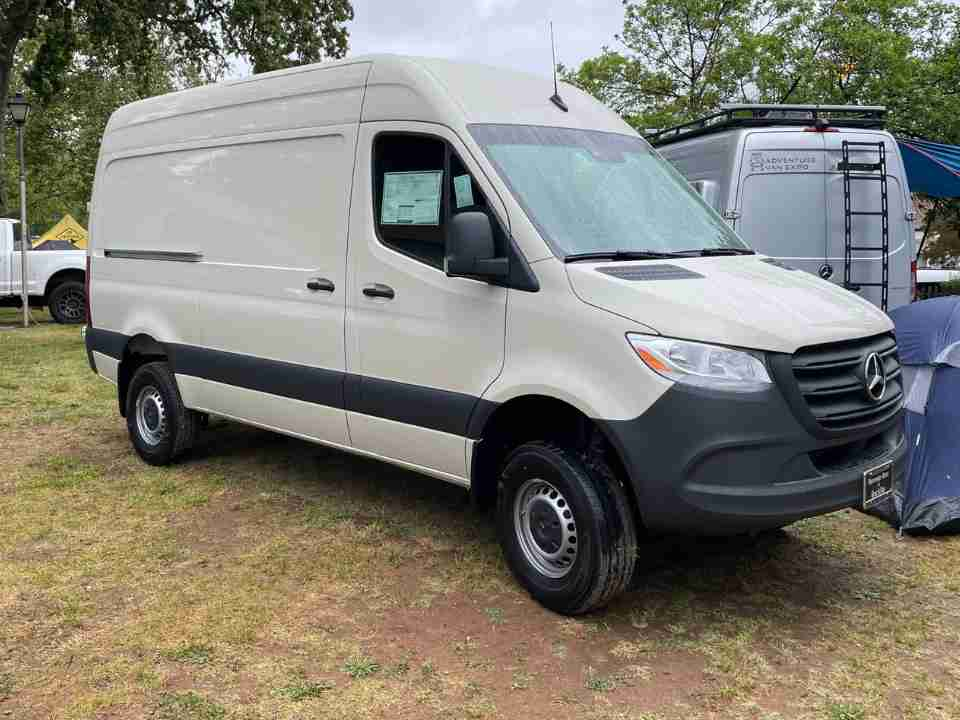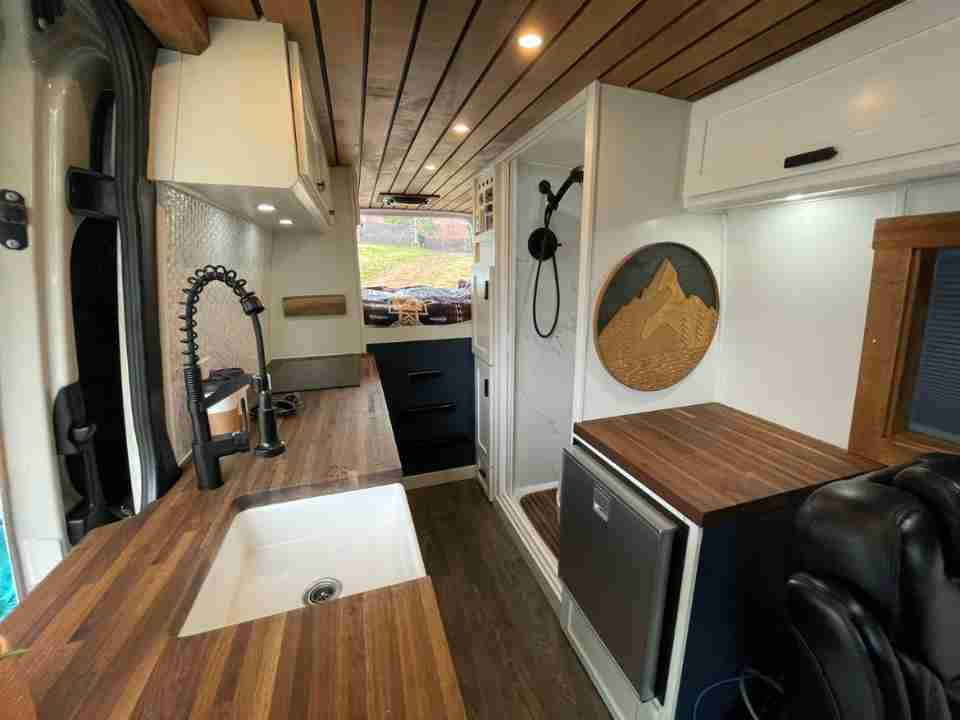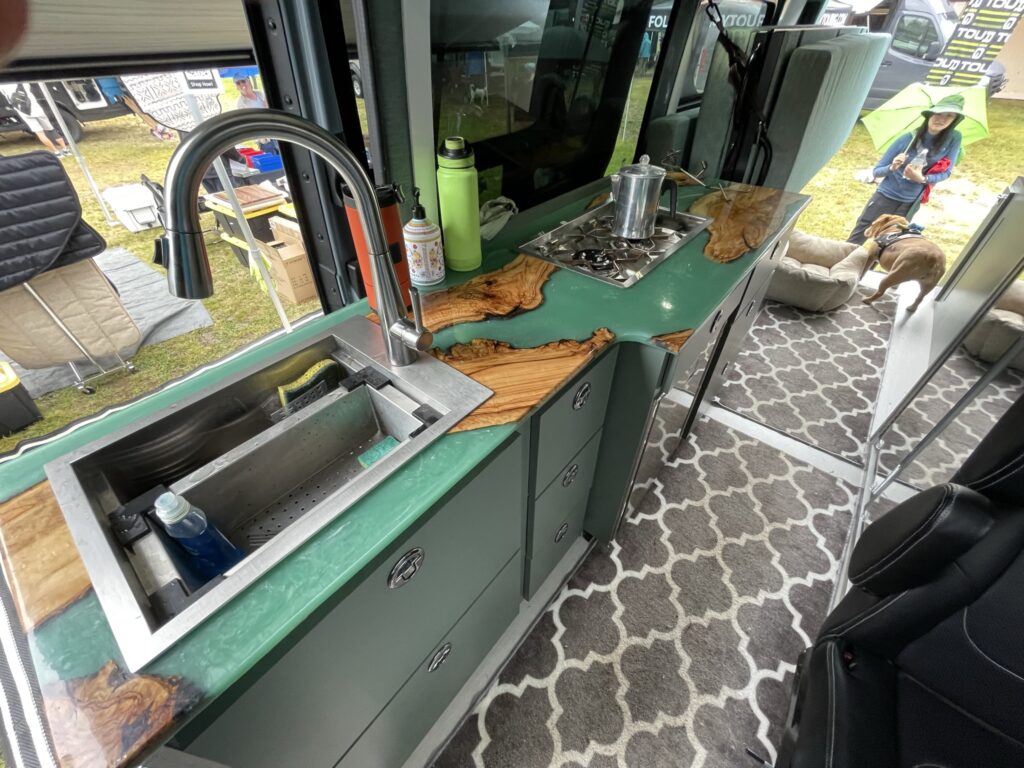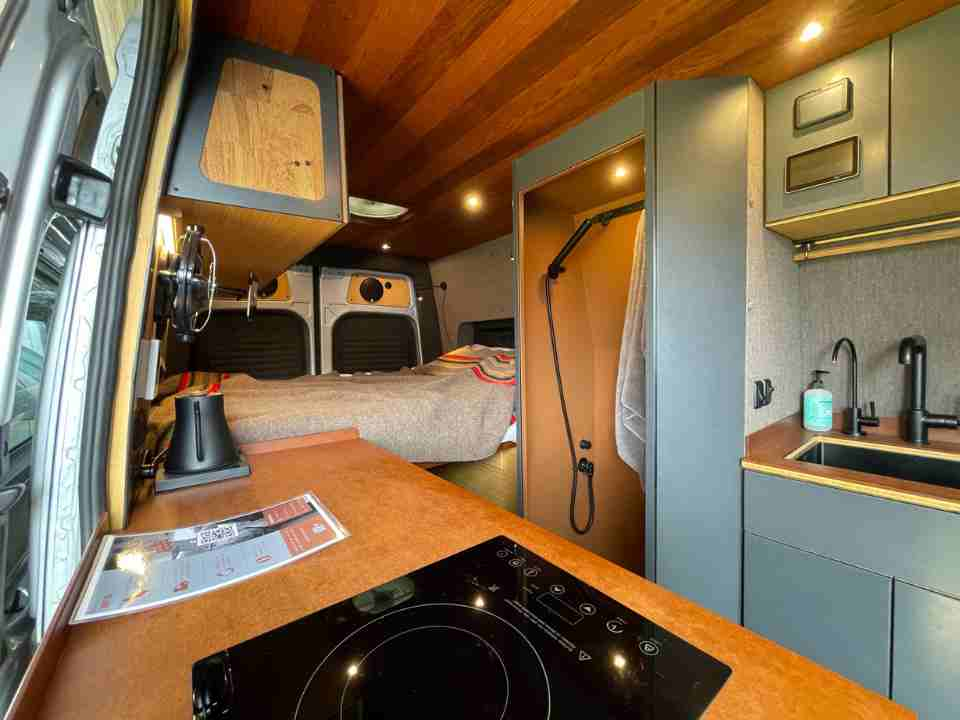Many people dream of hitting the road in a camper van, but the cost of buying a new or used one can be prohibitively expensive. As a result, people are turning to the DIY route and building their own camper vans. But is building your own camper van cheaper than buying one?
Building your own camper van can potentially save you money compared to buying a pre-built one, as long as you can acquire the materials at a low cost, and provide the labor yourself. Additionally, the cost can vary depending on the features you want in your camper van.
Cost of the Van as a Foundation

One of the most important considerations is the cost of the van that you plan to use as the base for your build. If you already own a van or can find a used one for a reasonable price, then the costs of building a camper van can be significantly lower than buying a pre-built one. On the other hand, if you need to buy a new van as the foundation for your build, then the costs can quickly add up.
If you haven’t purchased your camper yet and would like to know which van is the best option, read the article that I wrote on finding the perfect van for your build.
Another thing that can affect the cost of building a van is the level of customization. If you’re happy with a basic setup that includes a bed, a small kitchen, and a toilet, then you can keep costs low.
However, if you want more complex features such as a full bathroom with a shower, a large kitchen, and a solar power system, then the costs can add up quickly. It is important to plan ahead and have a clear budget before starting the building process.
Materials and Durability

When looking for materials, be mindful of the quality and durability of the materials you choose. Look for products that are durable and easy to maintain. The use of cheap materials can cause bigger issues that will cost you more in the long run.
Building a camper van requires a variety of materials, including both structural and finishing materials. These materials should be chosen with both cost and durability in mind. Here are a few of the materials that are commonly used in building a camper van:
Framing Materials
When building a camper van, the frame serves as the backbone of the structure and determines the overall strength and stability of the finished product.
Wood, aluminum, and steel are the common choices for framing the walls, floor, and ceiling of the van. These materials provide the structural support needed to keep the van stable while it’s moving.
Wood
Wood is one of the most commonly used materials to frame your DIY camper van build. That’s because wood is relatively inexpensive when compared to aluminum and steel. In addition, it’s easy to find and easy to work with. Wood is easy to cut and does not require specialized tools.
Wood does not conduct electricity. That makes it a better material when attaching electrical boxes between studs and door frames. Unlike metal studs, wooden studs support nails driven into the wall frames, providing more options for hanging decorations or other objects.
However, wood is heavier and not water resistant. It also requires more maintenance over time. But some people prefer to use it to bring a more natural or “homey” feel to their van build.
Metal
Metal studs are more durable. They will not bow, warp or rot. Galvanized metal studs resist water and fire damage. Metal studs are non-combustible. Metal studs are lighter in weight than wood studs, which is an important consideration in your camper build.
However, metal studs can only be used with drywall screws. While this makes construction more complicated, it leads to more stable frames. Metal has higher thermal conductivity, which can make it costlier and more difficult to heat your camper van. Plus, metal studs are more difficult to cut and require more specialized tools and skills.
Aluminum
Aluminum is another popular choice for building camper van frames. It is lightweight and rust-proof, making it a great option for van builds that will be frequently exposed to the elements. However, it can be more expensive than wood, and it is not as strong as steel.
Steel
Steel, like aluminum is more resistant to the elements. However, it is heavier than aluminum, which is a definite consideration in your build. Steel is also more expensive than wood. Steel frames can be welded together to create a durable and long-lasting structure, but they can also be heavy and prone to rust if not properly protected.
Additionally, Many DIY camper van builders also opt to use composite materials like fiberglass or carbon fiber, which offer a balance of strength, durability, and light weight. These materials are often more expensive than steel or aluminum and may be more difficult to work with, but they are also longer-lasting and resistant to corrosion.
Ultimately, the choice of framing material will depend on your preferences, budget, and the intended use of the camper van.
Insulation
A variety of insulation materials are used to help keep the van warm in cold weather and cool in hot weather. Common choices include polystyrene, polyurethane, and fiberglass.
Fiberglass
Fiberglass insulation is one of the most common types of insulation used in van builds. It is inexpensive, readily available, and easy to install. Fiberglass insulation is available in batts (pre-cut sheets) or loose fill, which can be blown into tight spaces using a special machine.
Spray foam insulation
Spray foam insulation can be used to insulate tight spaces in a van’s walls, floor, and ceiling. It is made of a mixture of chemicals that expand when sprayed, creating a hard, durable insulation layer. Spray foam insulation provides excellent insulation properties, but it can be expensive and can require professional installation.
Reflective insulation
This type of insulation is made of a reflective material that reflects radiant heat, rather than absorbing it. It can be placed behind other insulation materials, such as fiberglass, to provide an additional layer of insulation. Reflective insulation is lightweight, durable, and easy to install.
Wool insulation
Natural wool insulation is a more environmentally friendly option. It offers a good insulation and sound proofing, but it can be more expensive than other options and needs to be handled with care during the installation.
Others options include cork and cellulose insulation.
The choice of insulation material will depend on your preferences, budget, and the intended use of the camper van. Most important is to make sure that the insulation is effective enough to cope with the extreme temperatures that you may encounter. In addition, it’s important to consider proper ventilation in the van to prevent moisture issues.
Flooring

The floor of a camper van is usually covered with some kind of durable, water-resistant material such as vinyl or laminate. In addition, you’ll want to include a sub-flooring in your DIY camper van build.
When building a camper van, the flooring is an important consideration. The flooring not only affects the appearance of the van, but it also impacts the overall durability and functionality of the finished product. There are several different types of flooring materials that can be used in a camper van build, including:
Plywood
Plywood is a popular choice for a camper van sub-flooring material because it is inexpensive, easy to find, and easy to work with.
Plywood is available in a variety of thicknesses and can be cut to fit any shape or size. It is also strong enough to withstand the weight of people, furniture and appliances. However, it is not water resistant and may require additional protection, sealants, or coating against moisture.
Laminate
Laminate flooring is a popular choice for camper van flooring because it is durable and easy to maintain. Laminate flooring is also water-resistant and provides a good insulation. It is available in a variety of patterns and colors, and can be cut to fit any shape or size.
Vinyl
Vinyl flooring is another popular choice for camper van flooring. It’s available in a wide variety of styles and colors, and it is easy to clean and maintain. Vinyl flooring is also water-resistant and provides good insulation.
Carpet
Carpet is not a common option for a van flooring due to its lack of durability, easy staining and difficulties to clean. It may be used to cover a specific area of the van such as a bed platform.
Others
Options such as linoleum, rubber, and cork can also be used as flooring materials in a camper van build, but they are less common.
The choice of flooring material will depend on the builder’s preferences, budget, and the intended use of the camper van. It’s important to choose a material that is durable, easy to maintain, and can withstand the weight and foot traffic in the van.
Waterproofing
Sealants and coatings are used to make sure that the van is watertight and to protect it from leaks and water damage. It’s important to have the appropriate sealant for the type of material you’re using.
Windows
Acrylic, polycarbonate or tempered glass, are often used for windows in camper vans. These materials are durable and easy to install, they also come in a variety of sizes and shapes, to fit different designs and layouts.
Electrical and Plumbing
Electrical wiring, outlets, circuit breakers, and fuses, plumbing fittings, hoses, and water tanks, are also commonly used to build a camper van. It’s important to ensure that these materials are of good quality and can withstand the conditions of a moving vehicle. If electrical and plumbing installation are not your strong suit, consider hiring a professional. Be sure to include these costs in your van-build budget.
Appliances
Refrigerators, stoves, and other appliances, should be carefully selected for their power usage, weight, and energy efficiency.
There are several options and styles to consider for your camper van build. For example, propane stoves will require propane plumbing and connections. If you plan to have plenty of batteries and use solar power, you might consider an induction stove and electric water heater instead.

There are refrigerators that run on battery, propane or both. Three-way refrigerators that utilities battery, propane or shore power (electricity) are also options for your van build.
Labor and Skills Required
Labor is also an important factor in determining the cost of building your own camper van. If you have experience with carpentry, plumbing, and electrical work, then you may be able to do much of the work yourself, which can save a significant amount of money. However, if you lack the skills or the time to do the work yourself, then you’ll need to hire someone to do it for you, which can add to the overall cost of the build.
If you do decide that you’d like to complete the build yourself, you’ll need the following skills.
Carpentry
You will need to be able to cut, drill, and install wood, metal and other materials to build out the interior of the van. This includes things like building beds, cabinets, and other furniture, as well as installing insulation, flooring, and walls.
Electrical
You will need to be able to wire and install electrical components, such as lights, outlets, and appliances. This includes running wiring, installing circuit breakers and fuses, and connecting batteries and solar panels.
Plumbing
You will need to be able to install and maintain the van’s plumbing system. This includes running water lines, installing sinks, toilets, and showers, and connecting to a freshwater tank and a waste water tank.
Mechanical
You may also need to have some mechanical skills to build your own camper van. This may include basic engine and drive train maintenance, as well as knowledge of suspension and braking systems, especially if you are planning on making your van 4×4.
Auto Body
You may need to make some modifications to the exterior of the van, such as cutting holes for windows, installing roof vents and solar panels, or repainting.
Automotive systems
You may have to have some understanding of the vehicle’s systems like the electrical, the fuel, the cooling and the braking systems, in order to ensure the conversion is safe for the vehicle and for yourself.
Ongoing Costs and Long-term Value
It’s also important to consider the ongoing costs of owning a camper van, such as insurance, maintenance, and repairs. Building your own camper van will generally be cheaper in the long run than buying a new one, but it’s important to factor in these ongoing costs when making your decision.
On the other hand, building your own camper van allows you to customize it to your specific needs and preferences, and it can be a very rewarding and fulfilling experience. Additionally, a well-built camper van can often retain or even increase its value over time.
In addition to the materials, the durability of the camper van also depends on the quality of the build and the level of maintenance. It’s important to use materials and equipment that are built to last and that are easy to maintain, and also to keep up with regular maintenance, such as cleaning and tightening connections, to ensure that the camper van will last for many years and many miles on the road.
Conclusion
Whether or not it’s cheaper to build your own camper van depends on a variety of factors, including the cost of the van, the level of customization that you want, and the cost of materials and labor. It’s important to do your research, have a clear budget and a plan in mind before starting the building process. Additionally, be aware of ongoing costs, as they will add up in the long run. Building a camper van can be a rewarding and fulfilling experience, and it can also be a cost-effective solution if done right.
